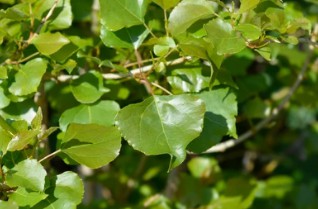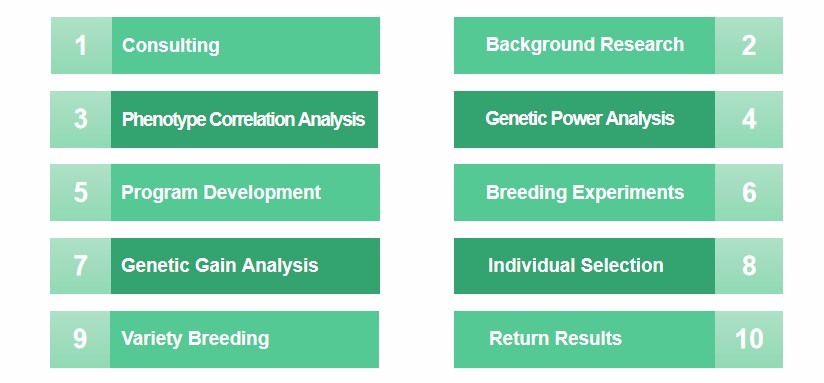
Poplar (Populus L.) is a plant of the Salix family and the genus Populus, mainly distributed in the cold and temperate regions of Asia, Europe, and North America. Populus L. has a long history of cultivation and utilization and has the characteristics of rapid growth, strong adaptability, and strong stress resistance. It occupies an essential position in planting artificial forests and is an important economic timber tree species, shelter forest tree species, and road greening tree species.
Populus L. has less resin, high cellulose, and is easy to bleach. It is an important industrial material and can be used as industrial raw materials such as paper, plywood, and matches. Populus L. has a tall trunk and is an excellent tree species for landscaping. It can also prevent sandstorms and stabilize the soil. It can be widely used in the ecological management of soil erosion and desertification.
Lifeasible can cultivate Populus L. tree species with new or target traits through one or more rounds of breeding selection, helping customers to utilize the advantages of Populus L. further and improve economic effects. Our one-stop service, from project consultation to results submission, is the best choice for your Populus L. breeding project.
Populus L. breeding research in Europe is earlier and more advanced than other tree species. In Asia, in the 1950s, a series of studies on selecting Populus L. species with fast-growing, high-quality wood, disease and insect resistance, and stress resistance were carried out. Lifeasible hopes to provide you with the highest quality Populus L. breeding service.
Populus L. tree species selection methods include polyploid, genetic engineering, and molecular marker breeding.
The hybrid selection of Populus L. is mainly based on the phenotypic identification of trees. High-quality Populus L. tree species with wind resistance, sand resistance, and fast growth are selected, and new varieties are formed through free random mating and natural selection.
According to existing studies, Populus L. can carry out polyploid breeding by efficiently doubling gamete or zygotic chromosomes. We also increased the heterozygosity of Populus L. polyploid, improved the breeding efficiency and effect of Populus L. polyploidy, and achieved a comprehensive improvement of Populus L. traits through selecting hybrid parents and the appropriate gamete chromosome doubling pathway.
Using genetic transformation to express exogenous genes in Populus L. cells, Lifeasible can breed Populus L. elite lines with characteristics such as disease resistance, insect resistance, and abiotic resistance. We can provide insect resistance genes, protein suppressor genes, antiviral genes, antibacterial genes, stress resistance genes, lignin reducing genes, and many other genes that can be transformed into Populus L. Transgenic poplars that have passed ecological safety monitoring and variety approval have biological safety and high production and application value.
Molecular marker technology is mainly used in Populus L. fingerprint map, genetic linkage map construction, and target gene identification. We provide RAPD technology to speculate on the origin and interspecies relationship of various Populus L. Differential analysis of genetic diversity and genetic traits of Populus L. using SRAP technology.

Lifeasible will provide you with a wide range of tree breeding services to help you select high-quality tree species with fast growth, long fiber, low lignin content, and high fiber content. If you are interested in our Populus L. breeding service, please feel free to contact us.
References
Lifeasible has established a one-stop service platform for plants. In addition to obtaining customized solutions for plant genetic engineering, customers can also conduct follow-up analysis and research on plants through our analysis platform. The analytical services we provide include but are not limited to the following:
Get Latest Lifeasible News and Updates Directly to Your Inbox
Adaptive Evolutionary Mechanism of Plants
February 28, 2025
Unraveling Cotton Development: Insights from Multi-Omics Studies
February 27, 2025